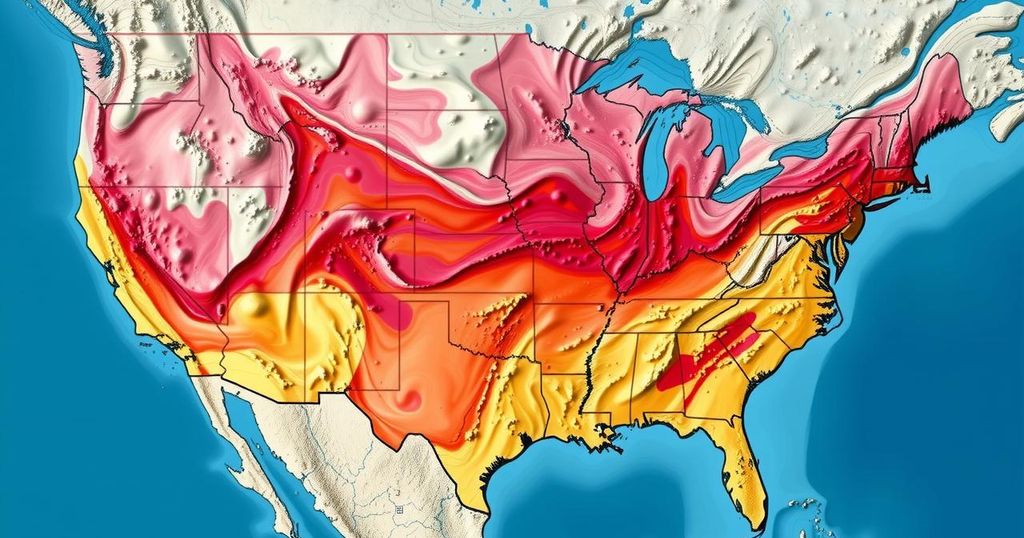The anticipated return of Donald Trump to U.S. presidency may result in another withdrawal from the Paris Agreement, raising concerns about the future of global climate commitments. While wealthy nations can afford to waiver from climate responsibilities, developing nations face severe consequences. The article discusses the implications of U.S. political shifts on international climate negotiations and the urgent need for decentralized climate action frameworks. As trust erodes among nations, the continuity of effective climate cooperation faces critical challenges.
The evolving landscape of American climate policy is poised for another significant shift with Donald Trump’s anticipated return to the presidency in January 2025. This change raises alarms within the global climate community, as it is likely to lead to the United States reconsidering its commitments to the Paris Agreement. The back-and-forth nature of U.S. participation in international climate accords underscores a larger, troubling narrative: while wealthy nations can revoke their obligations at will, developing countries cannot afford the luxury of doing so—they are fighting for survival amidst the impactful realities of climate change.
Initially, in 2016, the Obama administration’s approval of the Paris Agreement was viewed as a major step for U.S. climate leadership. However, Trump’s withdrawal in 2017 marked a downturn, rooted in assertions of economic disadvantage for American industries. Biden sought to rectify this by rejoining the agreement in 2021, signifying a temporary reinstatement of U.S. credibility. As Trump prepares for another term, skepticism grows about the future of international climate negotiations and the already fragile consensus surrounding climate action.
The patterns of U.S. engagement reveal significant disparities in how climate commitments are perceived by different nations. For countries in the Global South, the inconsistency of American policy represents a profound deception—treating commitments lightly is a privilege they cannot share, given their dire circumstances. It is no wonder that the plights of regions like coastal cities and drought-stricken areas create an atmosphere of resentment and despair over perceived betrayals.
As the U.S. wavers, developing nations may shift their negotiating strategies at the upcoming COP30. The prospect of the United States receding into isolationist policies only fuels skepticism about the reliability of Western climate commitments. Questions will arise around why developing nations should accept binding emissions targets that wealthier countries treat as optional.
The potential reversal in U.S. climate policy could redefine the global dialogue on climate action, with COP30 possibly transforming into a more theoretical discussion instead of one of substantial action. Consequently, developing nations might pursue independent strategies for climate resilience without relying on uncertain support from affluent nations. The increased weight that China carries in global climate diplomacy becomes all the more relevant as U.S. reliability wanes.
Such indeterminacy in U.S. policy raises critical queries regarding how climate action frameworks can endure political fluctuations. Many are now looking toward decentralized cooperation among cities and regions, as partnerships across state borders emerge to address climate issues directly, circumventing national government hesitance.
Despite these efforts, the fragility of trust established by the Paris Agreement remains a significant concern. The shifting perspectives on climate responsibilities amplify tensions and confirm skepticism among developing nations regarding Western climate commitments. As climate impacts become increasingly severe, the risks to international cooperation may culminate in a reality where collective environmental governance is profoundly threatened.
The era of assuming dependable Western leadership in climate policy is evidently over. The Global South, increasingly confronted with urgent climate threats, must forge pathways that are less contingent on the transient political currents of wealthier states. Accordingly, the pressing matter is not the continuity of international climate action, but rather in understanding what form it will take amidst the unpredictability of influential nations.
The article highlights the cyclical nature of American climate policy and its implications for global climate negotiations, particularly as it relates to the Paris Agreement. The inconsistencies in U.S. participation are contrasted against the backdrop of the varied realities faced by developing nations that are disproportionately affected by climate change. Through past dynamics under multiple administrations, a pattern emerges that reveals the challenges in fostering international commitments amidst domestic political changes.
In conclusion, the potential return of Donald Trump to the U.S. presidency signals another shift in American climate policy, which could have vast implications on global climate diplomacy, especially regarding the Paris Agreement. The ongoing oscillation of U.S. commitments complicates the climate action landscape for developing nations, who grapple with urgent climate threats while wealthier nations exhibit flexibility in commitment adherence. It remains crucial for all nations to establish resilient pathways for climate collaboration that are minimally influenced by national political fluctuations.
Original Source: www.ipsnews.net







